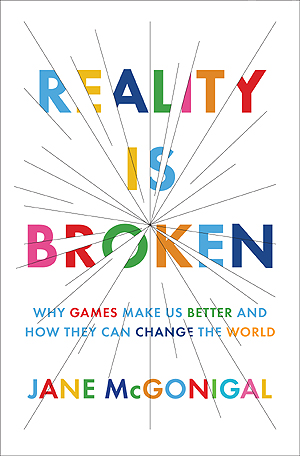Hello fellow gamers,
Before you start reading: my apologies for the long post, but I really need your help. If you do not have time to read all of the information, you can just skip to the questions. Thank you!
INFORMATION:
For the last 3 years I have been studying to become a secondary school teacher (English / history), but I've been a gamer for as long as I can remember.
Next year I will have to write a thesis about a subject related to "education" in order to get my degree / diploma. As mentioned before, I am a gamer, so naturally I chose a subject that combines both my hobby and my work.
I will focus most of my research on one main question: "how can commercial / educational games be used in English CULTURE lessons?"
I want to investigate if it is possible to discuss games in an English culture lesson in the same manner as you would discuss books / films / poems/ other cultural products...
QUESTIONS:
It would be a great help if you would answer all or some of the following questions. Thank you!
1: It is my belief that games are art (Roger Ebert would not agree with me...) and cultural products (like books, films, poems...). I think that games show us something about other cultures, they widen our world view and teach us various lessons.
Do you think games widen our world view like books, films... Or do you think that games are just plain entertainment?
2: What games do you think can be used in English culture lessons? Please consider that not all games are appropriate for all ages. You can recommend games for the following four age groups: 13-14/ 15-16/ 17-18/ 18+. ( for example: 18+ : Bioshock can teach students something about ethics and philosophy.)
3: What genres of games do you think are most appropriate for education? An MMO? An RPG? ...? Also include why you think this genre is more appropriate.
4: How do you think that games should be played for educational purposes? Should they be played during class by using a projector (who should play? Teacher or a student?) ? Should they be played individually during class? Should they be played at home?
5:The students will get an assignment that they will have to do while playing. What assignments can you come up with? These assignments can be as creative as you like. (think about some of the assignments you have ever received after reading a book for school. For example: write an alternative ending to a game. )
6: Would you like it if your teacher used games during his / her lessons? Why (not)?
7: Why do you think that not many teachers use games in their lessons? (if you are a teacher: do you use games during your lessons? Why (not)?)
For all of you who take the time to read and answer my post: thank you! I will mention the people who really help me (and those who want to be mentioned) in the acknowledgements of my thesis.
If you have more information about this subject, but you don't want to post it online where anyone can read it, you can always send an email to: games.education.thesis@gmail.com or visit my blog: http://games-education-thesis.blogspot.com/
Thank you!
games.education.thesis@gmail.com
http://games-education-thesis.blogspot.com/

Log in to comment